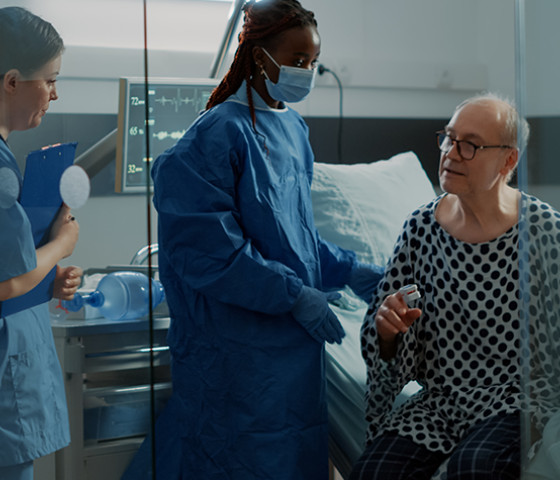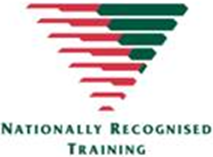HLT33115 Certificate III in Health Services Assistance
Do you have what it takes to care for others?
Become a healthcare worker and enjoy a fast-paced and exciting career. Gain the skills for an active, physical role supporting healthcare staff and clients.
This qualification reflects various roles involving factual, technical, and procedural knowledge in providing assistance to health professionals and direct client contact under supervision


Overview
Where Murdoch
When Semester 1, 2026
How On Campus
This course will prepare you to become a health care worker. This is an active, physical career which provides assistance to healthcare staff and clients.
This qualification reflects the role of a variety of workers who use a range of factual, technical and procedural knowledge to provide assistance to health professional staff for the care of clients. Health services assistance involves the worker in direct client contact under supervision.
- interpret and apply medical terminology appropriately
- organise personal work priorities and development
- communicate and work in health or community services
- work with diverse people
- recognise healthy body systems
- Apply basic principles and practices of infection prevention and control
- participate in workplace health and safety
- assist with movement
- prepare and maintain beds
- transport individuals
- provide first aid
In order to make an informed choice about the suitability of this course, you must take into account the essential skills and knowledge required to undertake this study.
- ability to work well with others and good communication skills
- good time management skills and the ability to prioritise tasks
- comfortable working in a personal care environment
- caring, respectful attitude towards others
This course requires flu and COVID-19 vaccination, medical test, NDIS/health clearance, police clearance and working with children check prior to work placement. See the important information tab for instructions.
Select your preferred campus and apply
Semester 1, 2026
Details
Course fees
Units and fees
Core
| National ID Unit title | General | Concession | Resource |
|---|---|---|---|
| BSBMED301 Interpret and apply medical terminology appropriately | $130.00 | $38.80 | $34.25 |
| BSBWOR301 Organise personal work priorities and development | $97.50 | $29.10 | $26.25 |
| CHCCOM005 Communicate and work in health or community services | $162.50 | $48.50 | $10.50 |
| CHCDIV001 Work with diverse people | $97.50 | $29.10 | $10.50 |
| HLTAAP001 Recognise healthy body systems | $65.00 | $19.40 | $62.25 |
| HLTINF006 Apply basic principles and practices of infection prevention and control | $162.50 | $48.50 | $74.25 |
| HLTWHS001 Participate in workplace health and safety | $97.50 | $29.10 | $71.75 |
Elective
| National ID Unit title | General | Concession | Resource |
|---|---|---|---|
|
|
$65.00 | $19.40 | $45.00 |
|
|
$97.50 | $29.10 | $8.25 |
|
|
$32.50 | $9.70 | $42.50 |
|
|
$48.75 | $14.55 | $7.75 |
|
|
$32.50 | $9.70 | $38.75 |
|
|
$58.50 | $17.46 | $98.25 |
|
|
$97.50 | $29.10 | $69.25 |
|
|
$130.00 | $38.80 | $57.50 |
Indicative fees and charges
The fees quoted are estimates only and are for all units in the course for students enrolling on a full-time basis. If you're a student that has successfully completed a lower-level qualification that is a prerequisite for this course, you'll only pay for the units that you need to enrol in to complete this course. Please view the full list of fee disclaimers.